A glimpse into the 2020 Bolivian presidential election on Twitter
Twitter activity ramped up after Evo
A glimpse into the 2020 Bolivian presidential election on Twitter
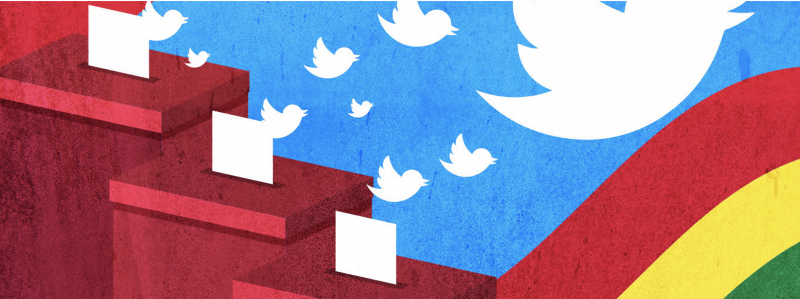
Twitter activity ramped up after Evo Morales resigned in 2019, with polarizing content rising before the 2020 election
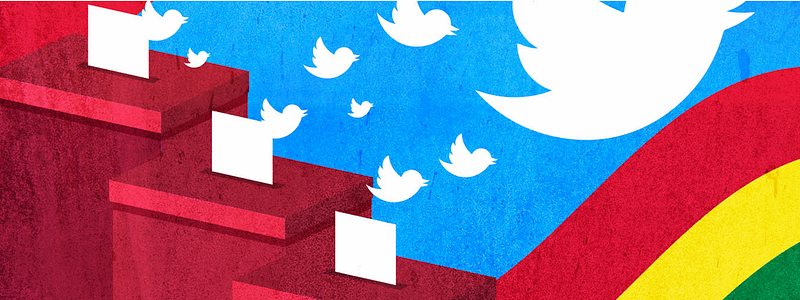
In the aftermath of Evo Morales’ November 2019 resignation as president of Bolivia, Twitter has become one of the most popular platforms in the country to push online narratives related to the 2020 Bolivian elections. Twitter conversations linked to the current electoral process in Bolivia increased more than 500 percent compared to the 2019 elections. Although Morales’ resignation was a watershed event in the Bolivian Twittersphere, Twitter accounts with user-defined locations set to Argentina and Venezuela were responsible for more than one-third of the conversations around the 2020 Bolivian elections.
After nearly 14 years as President of Bolivia, Evo Morales resigned on November 10, 2019, sparking controversy over whether his resignation was a coup or a result of fraud allegations linked to the October 2019 election. These discussions generated massive activity on Twitter in late 2019, which included narratives either in support of Morales or against him, contributing to a polarized online political climate in the country.
Right-wing former Senator Jeanine Áñez took office on January 22, 2020, as interim president. The interim government postponed new elections to October 2020 because of the COVID-19 pandemic. On October 18, the Bolivian people elected their new government, including the president, vice president, and members of the Bolivian Congress. By October 19, Evo Morales’ left-wing ally, Luis Arce, secured more than 50 percent of the votes, ushering a projected victory.
The Colombia-based investigative journalism outlet CONNECTAS and the DFRLab analyzed Twitter activity around the 2019 Bolivian elections and the current electoral process. The research found that, since Morales’ resignation, the Bolivian Twittersphere was more active compared to during the previous elections. The investigation also found that user accounts with locations set to Argentina and Venezuela posted more than one-third of the overall volume of tweets to hashtags related to the elections, suggesting that the discussion also attracted actors from other countries.
The Bolivian Twittersphere
Researchers scanned posts on Twitter related to both the 2019 and 2020 Bolivian elections, including keywords and hashtags such as “Elecciones Bolivia” (“Bolivian elections”), #EleccionesBo, #EleccionesBolivia2019, and #EleccionesBolivia2020. In this context, the research analyzed only tweets that included at least one of those keywords and hashtags posted between August 1, 2019, and October 15, 2020. In total, the search returned more than 3 million results, according to a query using the social listening tool Meltwater Explore.
Over the period of analysis, the investigation identified four peaks in the volume of tweets that happened during specific political moments: (1) the 2019 Bolivian elections; (2) Morales’ resignation as President of Bolivia; (3) posts linked to a Washington Post article that discussed the 2019 Bolivian elections results and a subsequent report from the Organization of American States (OAS), and (4) the 2020 Bolivian elections conducted on October 18, 2020.
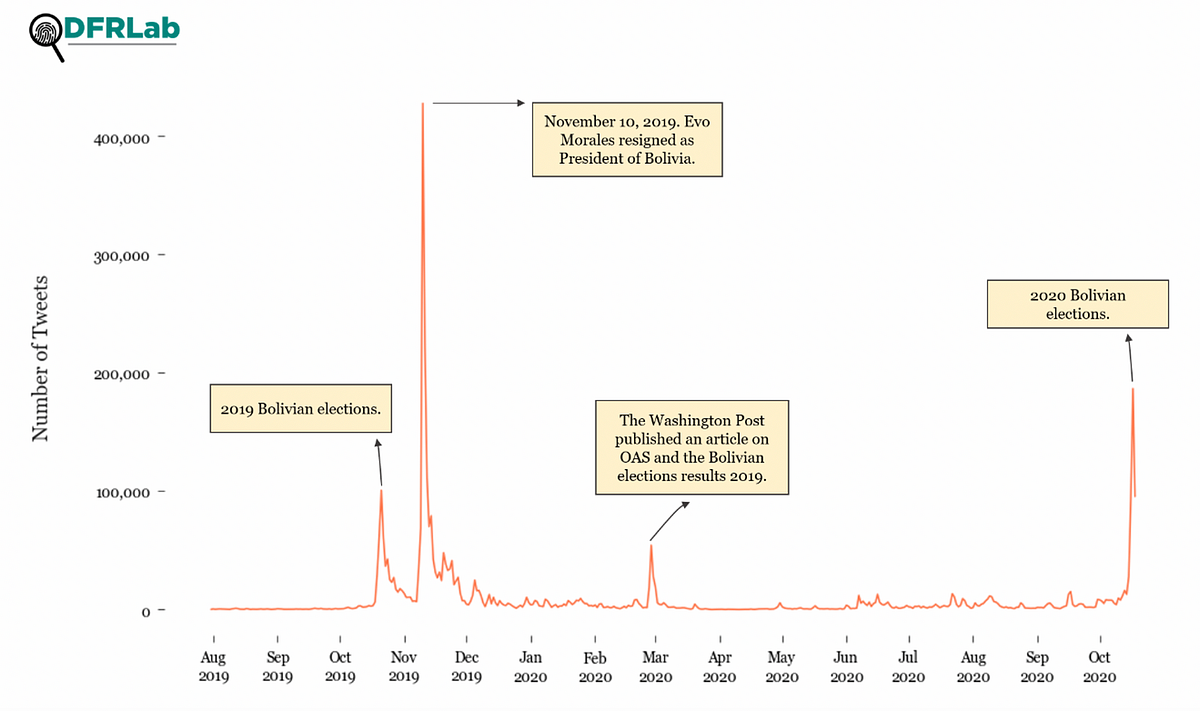
A closer analysis of the posts’ volume previous to both elections shows that Twitter activity increased more than 500 percent. Such growth in Bolivian election-related activity on Twitter can likely be explained due to the increase in political interest amid Morales’ resignation; it is also possible that the COVID-19 pandemic has drawn more individuals to discussing politics online rather than in person. The interim government postponed the elections twice: first from May to September, and finally to October. Those delays led to an ongoing and expanding electoral discussion until October 2020.
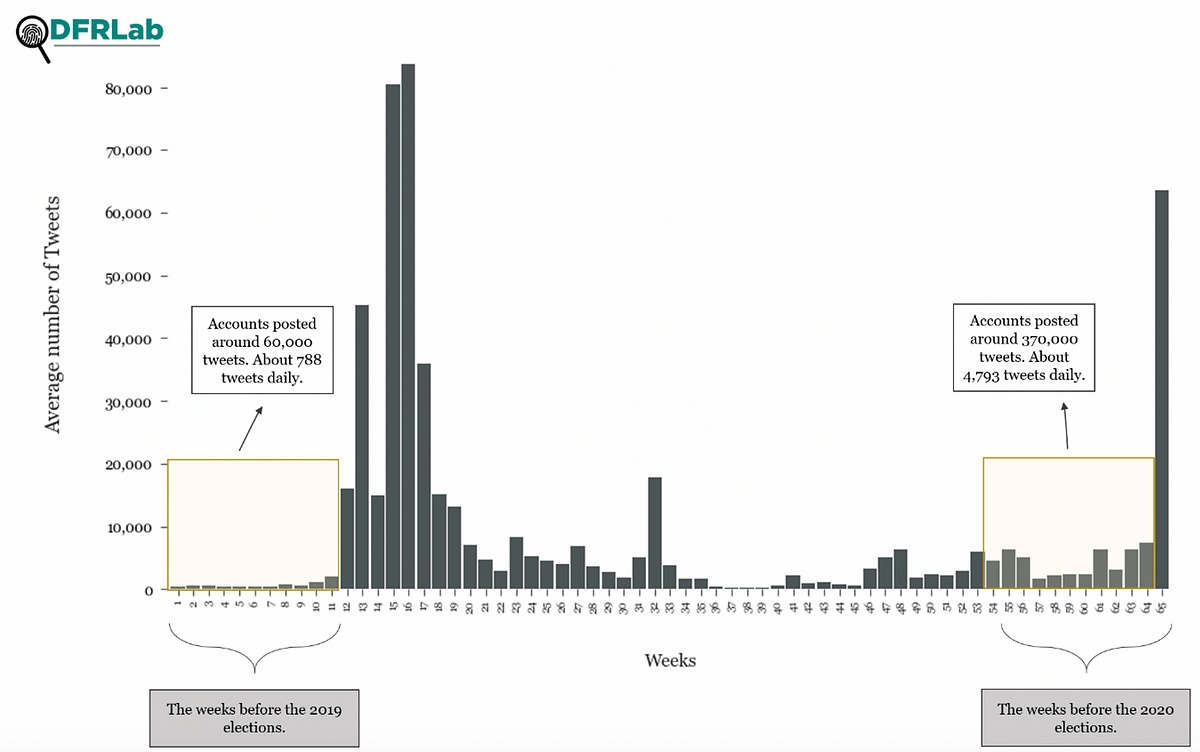
The narratives amid the run-up to the October 2020 elections included allegations of threats against supporters of the political party MAS (Movimiento al Socialismo, or “Movement for Socialism”), Evo Morales’ political party. Some of the accounts pushing these narratives were among the most active accounts engaging election-related conversation. Accounts linked to the Maduro-backed TV broadcaster Telesur, such as @Marco_Teruggi, pushed similar narratives.
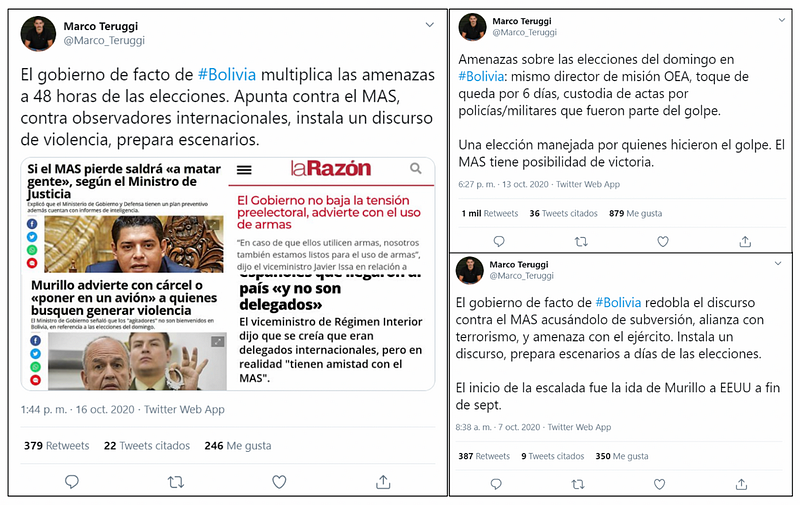
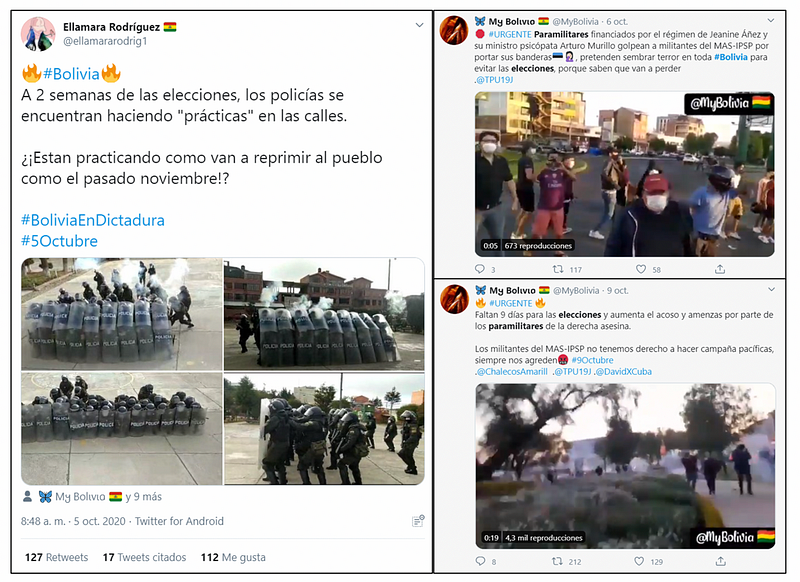
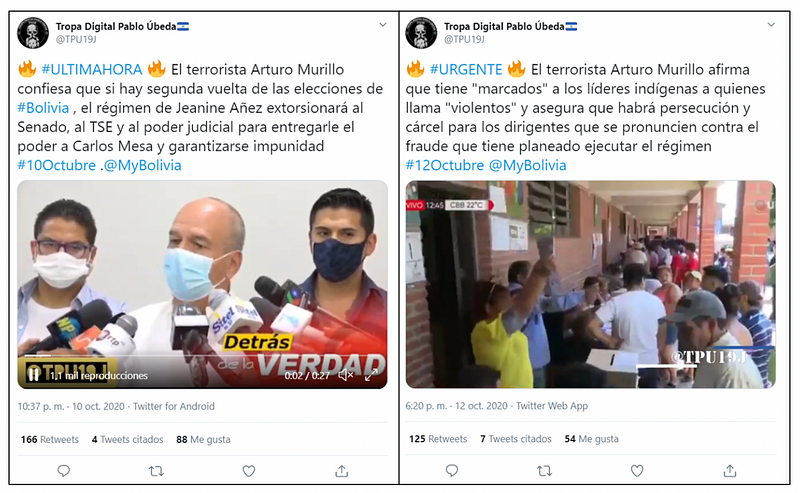
The polarized environment on Twitter included conversations both supporting MAS presidential candidate Luis Arce and those against MAS. The latter included posts either in favor of Carlos Mesa or Luis Fernando Camacho, the two other 2020 presidential candidates.
The most used hashtags supporting MAS were #GolpeDeEstadoEnBolivia (“A coup in Bolivia”), referring to Morales’ ouster in 2019; #BoliviaMereceMAS (“Bolivia deserves MAS”), referring to the political party Movement for Socialism; and #BoliviaEnDictadura (“Bolivia in dictatorship”), referring to the interim government led by Jeanine Áñez. Those in opposition to MAS were #ElMasNuncaMás (“The MAS never more”), and #BoliviaVictimaDelMAS (“Bolivia MAS victim”).
A DFRLab scan using Meltwater Explore shows that these hashtags garnered more than 650,000 mentions between January 1 and October 18, 2020. The content in favor of the political party MAS was the most engaged-with by the Twitter accounts.
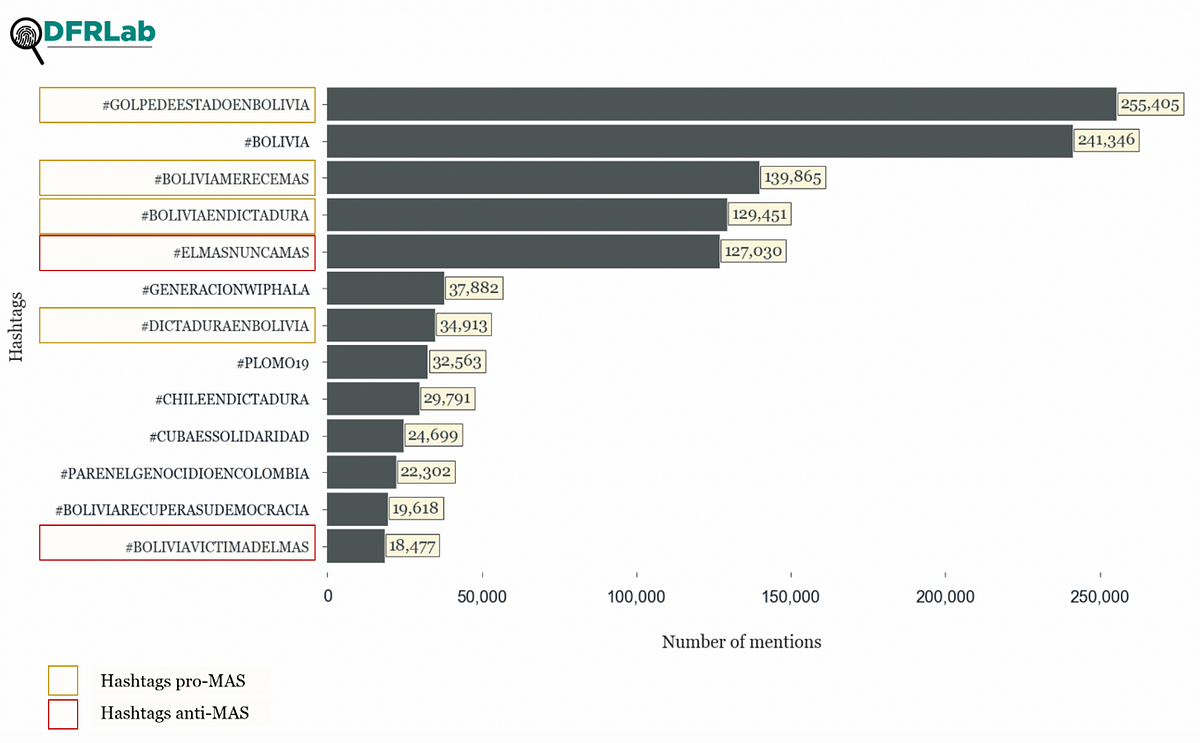
A Twitter scan using the free Twitter API utilizing the same keywords and hashtags used to monitor the elections as described above collected about 250,000 mentions by 87,500 unique users posted between October 5–19, 2020. According to these users’ creation dates, around 200 of them joined Twitter the day after Morales resigned as president, while more than 10,000 out of the 87,500 accounts joined Twitter over the course of 2020.
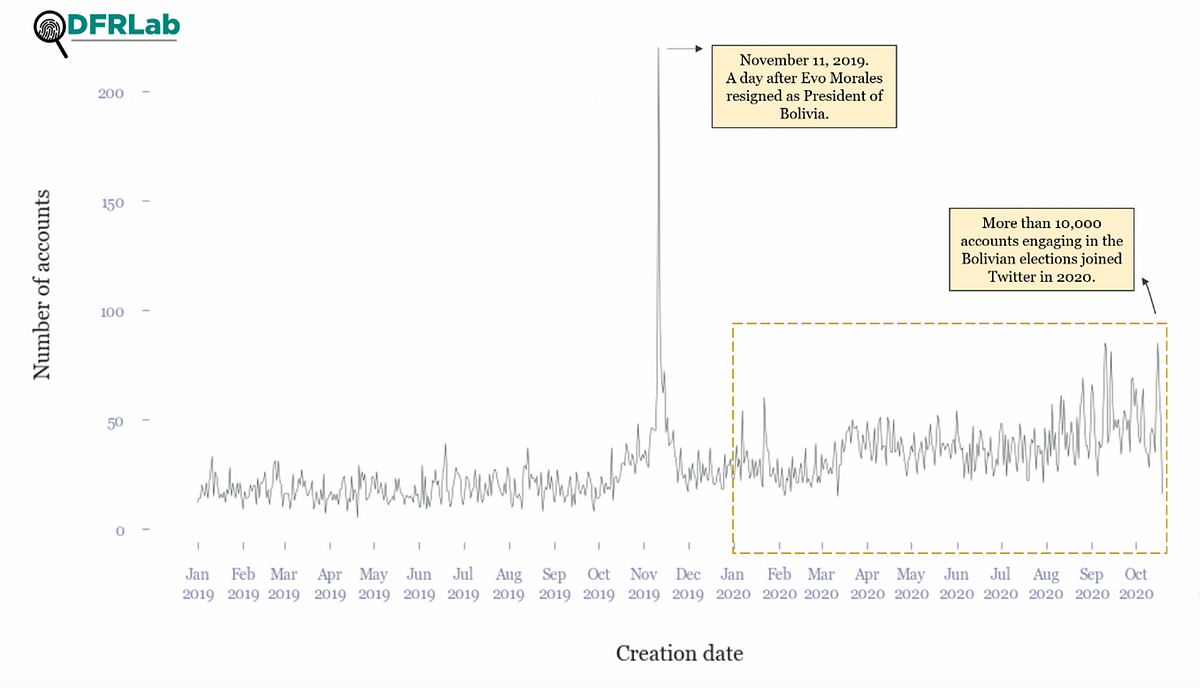
Both Twitter activity and user creation dates show that accounts have engaged more actively in the 2020 elections compared to the 2019 elections in Bolivia. But although the Bolivian Twittersphere may have grown since Morales’ resignation, user accounts with locations set to Argentina and Venezuela were the most active accounts engaging around the 2020 Bolivian elections. Between October 1–19, 2020, Argentina and Venezuela-linked accounts were each responsible for 20 percent of the Twitter activity using election-related hashtags and keywords, while Bolivia-linked accounts were responsible for roughly 13.5 percent.
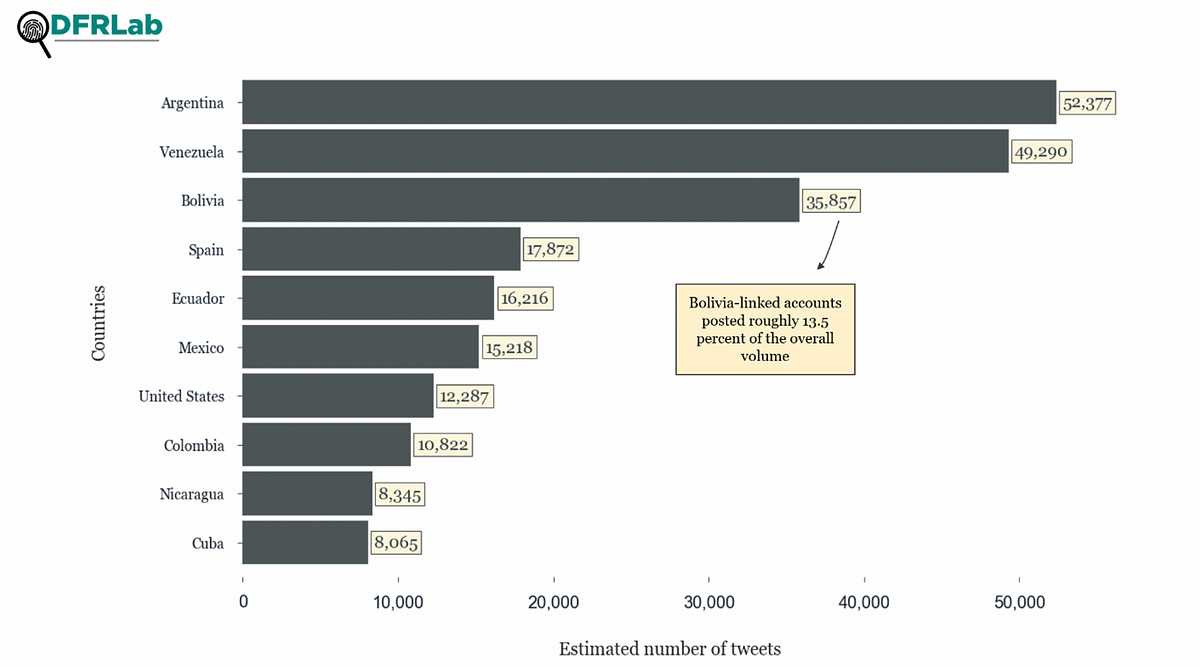
The hashtag #BoliviaMereceMAS was among the most used hashtags by these accounts, which could indicate that most of these accounts favored Morales’ MAS party, whose candidate Luis Arce secured more than 50 percent of the vote as of October 19, 2020.
The Bolivian Twittersphere is a key component of online political discourse in Bolivia. This analysis demonstrates that political discussion on Twitter in Bolivia is increasingly active and polarized; it also indicated that foreign-linked accounts, most likely based in Venezuela and Argentina, have also actively engaged in the discussion.
Esteban Ponce de León is a Research Assistant, Latin America, with the Digital Forensic Research Lab.
This research was conducted in partnership with the Colombia-based investigative journalism outlet CONNECTAS, and a group of Bolivian journalists: Miriam Telma Jemio, Fabiola Chambi, Juan Carlos Uribe, Ernesto Estremadoiro, Susana López, and Giovana de la Cruz. You can read this research in Spanish here.
Follow along for more in-depth analysis from our #DigitalSherlocks.

